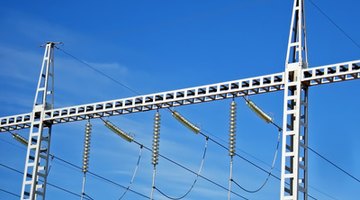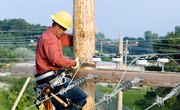An electrical lineman can be considered a vital part of modern technology. Linemen build and maintain the vast network of electrical power systems that keep critical mobile and internet devices running. It’s a lucrative but physically demanding position. The industry is expanding and continually changing, making the job of an electrical lineman a secure one.
Some schools may also require previous drug tests, if applicable, that you may have had to complete as a requirement of your employment. Training can be completed either through an electrical lineman program, through an apprenticeship or through an employer.
Cost of Training to Be a Lineman
Tuition for a certificate program at an electrical lineman school in Georgia can run from a few hundred dollars to nearly $15,000 for a quality program. The cost is dependent on the length of schooling and the previous training a student has under his belt. Financial aid is often available for tuition.
Aside from tuition costs, there are other expenses that come with training for the job of electrical linemen, including climbing and hand tools, which can run upward of $2,000, and application, lab, commercial driver’s license and drug test fees.
What it Takes to Become a Lineman
Training can be completed at a vocational school or community college or through time spent in the military. These programs typically take a year. A two-year junior college program or advanced training school can provide advanced training, including:
- Microwave transmission
- Fiber optics
- Electrical transmission
- Cell phone tower repair
It typically takes three years to become a certified and skilled electrical lineman after completing a program and apprenticeship. Often, an employer will find and fund an apprenticeship for a student who has completed a previous lineman training program.
Salary Prospects for Linemen
This position pays well due to its physically challenging duties. Upon graduating from an accredited school, a lineman can expect to make between $40,000 and $70,000. The more advanced training and work experience an electrical line worker has, the higher the salary can rise.
Southeast Lineman Training Center
This private school is consistently ranked as one of the best electrical line worker training centers in the country. Southeast Lineman Training Center has an extensive hands-on center in Trenton, Georgia. The program includes basic training courses in electrical and communications line work as well as advanced industry training.
Students can benefit from on-site training with companies from around the world that are in need of quality line workers. Students can complete their state-approved commercial driving license requirements through SLTC’s training course.
Southeastern Line Constructors
Located in southwest suburban Atlanta, Southeastern Line Constructors offers programs where future line workers can earn a paycheck while they navigate the extensive electrical line courses. The school partners with Southeastern Line Constructor’s Chapter of the National Electrical Contractors’ Association and the International Brotherhood of Electrical Workers.
SELCAT offers a wide variety of programs, including:
- Overhead lineman
- Substation technicians
- Signal technicians
North Georgia Technical College
Those who have an associate degree or other certificate that shows they need no learning support courses can fast track through this program. Students can complete the North Georgia Technical College Electrical Lineworker Apprentice Program in a minimester. The school trains electrical linemen in a wide range of areas.
NGTC’s training programs include:
- Electrical lineworker occupational skills
- Electrical lineworker workplace skills
- Electrical lineworker organization principles
- Electrical lineworker automation skills
The school also offers a certificate program for entry-level lineworker positions with public and private electrical utility companies.
Coastal Pines Technical College
Coastal Pines Technical College in Waycross, Georgia is renowned for its certificate program for entry-level lineworker positions with public and private electrical utility companies.
Students can obtain an associate degree, two-year certificate, one-year certificate and several-month certificate. It has a student body of around 2,500 with a retention rate of about 60 percent.
Related Articles
References
Writer Bio
Kimberley McGee is an award-winning journalist with 20+ years of experience writing about education, jobs, business trends and more for The New York Times, Las Vegas Review-Journal, Today’s Parent and other publications. She graduated with a B.A. in Journalism from UNLV. Her full bio and clips can be seen at www.vegaswriter.com.











